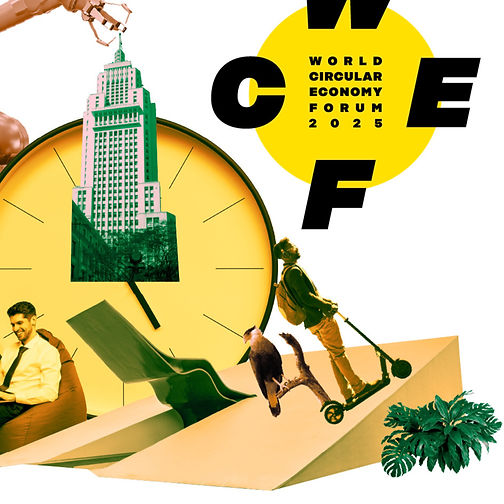15 May 2025 | São Paulo, Brazil
Ancestral Futures for a Circular Economy
Aligned with the “people” track, this session explores the cultural and social dimensions of the circular economy by showcasing how ancestral knowledge contributes to sustainable business models and governance. We highlight Indigenous-led bioeconomy initiatives in the Amazon and their relevance to climate resilience, biodiversity, and economic transitions. Through interactive discussions with Indigenous leaders, scholars and policymakers, the session fosters partnerships, bridges traditional wisdom with innovation and aligns circular solutions with global climate and biodiversity goals.
Time & Location
May 15, 2025
09:00 - 12:00 (BRT)
Museu de Arte Contemporânea
da Universidade de São Paulo.
Av. Pedro Álvares Cabral, 1301 - Vila Mariana,
São Paulo - SP, 04094-050, Brasil
São Paulo, Brazil


About
This session explores integrating ancestral knowledge with strategic foresight to advance circular
economy practices.
Key questions:
a) How can Indigenous organizations lead or act as intermediaries in territorial transitions toward a circular economy?
b) How can Ancestral Futures, as described by Ailton Krenak, inspire circular solutions by linking cultural heritage with foresight, futures literacy and the role of mother tongue instruction and intergenerational practices in transferring heritage?
c) How can these tools show Indigenous and ancestral wisdom as drivers of forward-thinking strategies for a sustainable circular economy?
d) How can enhancing community innovation capabilities implement circular practices rooted in ancestral traditions, creating inclusive pathways for empowerment?
The session highlights practical examples like Da Tribu, a women-led social enterprise in the Amazon positioning local communities as protagonists of its business model, and circular models recognized by the UNDP Equator Prize.
Linking traditional wisdom with science and foresight, the session shows how millennia-old sustainable practices complement scientific findings to address today’s polycrises.
It fosters inclusivity, innovation, and sustainability within the circular economy framework.
Explore how ancestral knowledge, combined with strategic foresight, drives innovative and
inclusive circular economy solutions. This session features Indigenous leaders, scholars and
practitioners showcasing scalable models like Da Tribu, a women-led Amazonian enterprise.
Discover how traditional wisdom and modern science unite to address global challenges and
inspire actionable strategies for a sustainable future.
Organized By
-
Faculty of Economics, Administration, and Accounting, University of São Paulo
-
AEI International School, Paris-East Créteil University
-
Circular Innovation Lab
-
Federal University of Pará
-
United Nations Development Programme
Hosted by



Agenda

The Agenda for the 'Ancestral Futures for a Circular Economy People Track 'Accelerator Session will be published by April 2025

